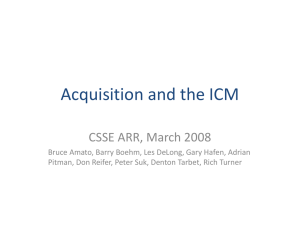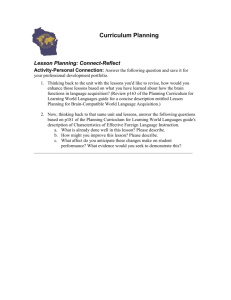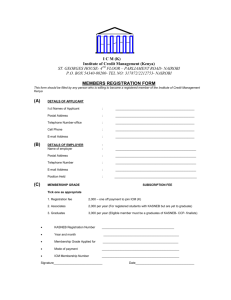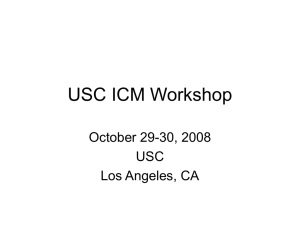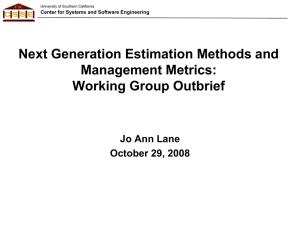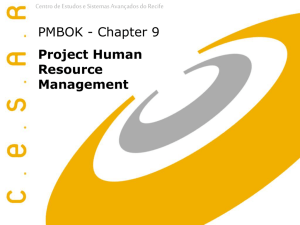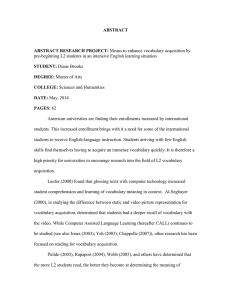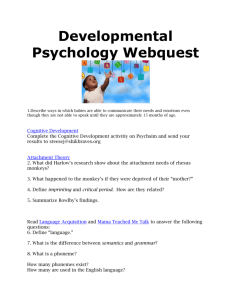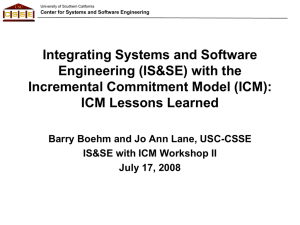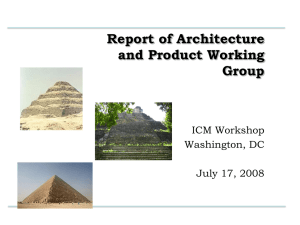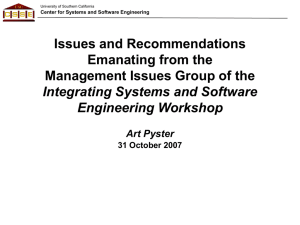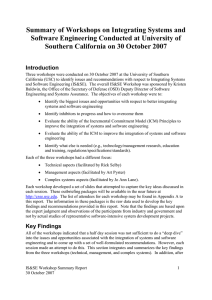Systems/Software ICM Workshop Acquisition and Process Issues Working Group
advertisement
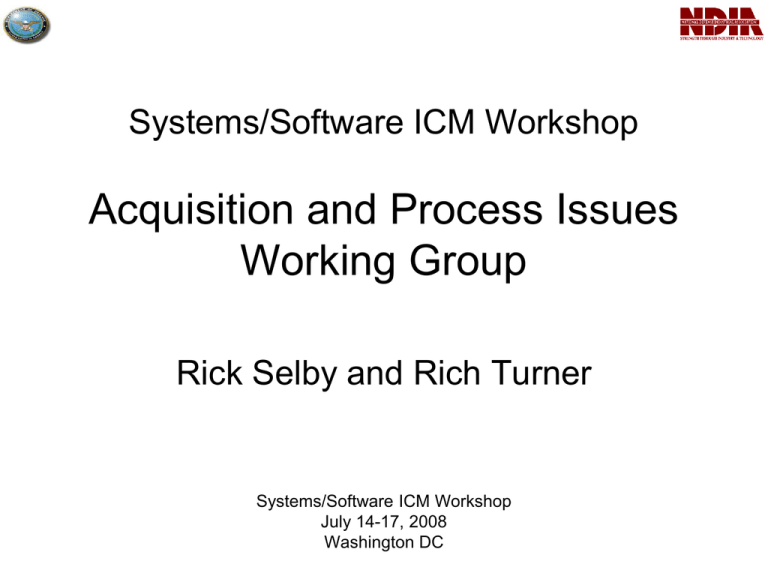
Systems/Software ICM Workshop Acquisition and Process Issues Working Group Rick Selby and Rich Turner Systems/Software ICM Workshop July 14-17, 2008 Washington DC Some Quotes for Context Setting ● "The only way we will have large acquisition programs on schedule, within budget, and performing as expected, is for everyone - from Congress down to the suppliers - to all stop lying to each other at the same time." ● "Software's just another specialty discipline and doesn't deserve special attention. Integrating software engineering into the development is the job of the chief system engineer." ● "It takes so long for a program to reach deployment that we are essentially acquiring legacy systems." ● "Spiral process is nothing more than the vee chart rolled up." ● "There is no such thing as an emergent requirement." ● "Evolutionary acquisition is just a ploy to excuse the software guys’ incompetence and let programs spiral forever without having to deliver something." Some Topics for Discussion: Acquisition and Process ● Quality Factor Tradeoffs – Integrating hardware and software quality factor evidence planning and preparation guidelines – Coordinating single-quality-factor IPTs ● Cost and Risk – Budgeting for systems and software risk mitigation – Risk-driven earned value management – Translating shortfalls in feasibility evidence into next-increment risk management plans ● Requirements – Concurrently engineering vs. allocating system, hardware, software, and human factors requirements – Methods for dealing with requirements emergence and rapid change ● Competitive Prototyping – Supporting value-adding continuity of prototype development and evaluation teams ● Topic Specifics – Synchronizing different-length hardware and software increments – Early hardware-software integration: hardware surrogates – Contracting for 3-team developer/V&Ver/next-increment rebaseliner incremental development Incremental Commitment Life Cycle Process Stage I: Definition ©USC-CSSE Stage II: Development and Operations Understanding ICM Model for Software ● Reconciling the milestones – Where are LCO/LCA/IOC and SRR/PDR/CDR? – When are the downselects: 3 to 2, 2 to 1? ● How to drive behavior – RFP language – Award fee – Large carrot (sole winner of major program) ● ● How long does the competitive phase last (ends at Milestone B, ends later, etc)? Create a “whole new contractor role” that gets awarded to the 2-to-1 downselect non-winner – External evaluators come into reviews (“air dropped”) and have a high entry barrier and limited context to achieve success – Loss of valuable expertise in the non-winner – Non-winner becomes the “evaluator” of evidence throughout the program ● ● What kinds of evidence/prototypes are needed for what kinds of risks? Funding – Who pays for pre vs post 2-to-1 downselect (what color)? ● How do you use CP to do: – New approaches for model definition and validation – Quality attribute trades (non-functional)
